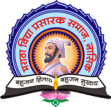Program Specific Outcome (PSOs)
| B.A. (Geography) | PSO1. Student will gain the knowledge of physical geography. PSO 2. Associating landforms with structure and process; establishing man-environment relationships and exploring the place and role of Geography vis-a-sis other social and earth sciences. PSO 3. Students can easily correlate the knowledge of physical geography with the human geography. PSO 4. Understanding the functioning of global economies, geopolitics, global geostrategic views and functioning of political systems. PSO 5. The physical environment, human societies and local and/or global economic systems are integrated to the principles of sustainable development. PSO 6. Sensitization and awareness about the hazards and disasters to which the subcontinent is vulnerable; and their management. PSO 7. As a student of the Course, they will enrich their observation power through field experience and in future this will be helpful for identifying the socio- environmental problems of their community. PSO 8. Training in practical techniques of mapping, cartography, software, interpretation of maps, photographs and images etc. so as to understand the spatial variation of phenomena on the Earth’s surface. They will learn how to prepare map based on GIS by using the modern geographical map making techniques. |
Course Outcome (Cos)
| Course Outcome (Cos) – First Year Bachelor of Arts | ||||
| Course Code | Title | Syllabus Revised Year | Course Outcome | |
| 11201 | Physical Geography | 2019 (CBCS) | CO1: Describing human environment and nature –society interaction as well as global human and environmental issues. CO2: Identifying and explaining the planets human and physical characteristics and processes from global to local scale. CO3: Evaluating the impacts of human activities on natural environment. CO4: Understanding the physical basis of natural greenhouse effects. CO5: Understanding the ways of various human activities which are increasing emission of the natural greenhouse gases and also contributing to sulphate aerosol in the troposphere. | |
| 12201 | Human Geography | (CBCS | CO1: Students will acquire and understand relationship between Geography and culture. CO2: Students will read, understand, interpreted and generate the maps. CO3: Acquiring the knowledge about Global human population pattern and factor influencing the distribution and mobility of population including settlement and economic activities. CO4: Able to think spatial terms to explain what happens in past using geographic principle and to understand present and plan of future. | |
| Course Outcome (Cos) Second Year Bachelor of Arts | ||||
| Course Code | Title | Syllabus Revised Year | Course Outcome | |
| 23201/24201 | Geography of Maharashtra | 2020 (CBCS) | CO1: Explain the physical and administrative of Maharashtra. CO2. Classify the agro based industries and mineral based industries. CO3. Describe the regional and seasonal variations of the climatic regions of Maharashtra. CO4. Discuss the population growth and various types of population density. CO5. Solve the problems of growth of population and urbanisation. CO6. Construct the reduced and enlarged maps. CO7. Construct maps by using Prismatic survey. | |
| 23204/24204 | Environmental Geography | 2020 (CBCS) | CO1: Understanding the structure composition of atmosphere. CO2: Fulfilling the study about nutrient cycling. CO3: Understanding the values of resources. CO4: Showing awareness about conservation of recourses. CO5: Understanding environmental problems their causes, effects and remedies. | |
| 23203/24203 | Practical Geography | 2020(CBCS) | CO1: Understand the map projection and its uses. CO2. Development of skill to draw polar area with different projection. CO3. Understand the conventional projections . CO4. Understand the uses of surveying and its importance. | |
| 23206/24206 | Fundamentals of GIS, GPS and Remote Sensing | 2020(CBCS) | CO1: Comprehend the GIS and its types. CO2. Understand spatial data structure and management. CO3. Develop the skill to draw maps. CO4. Understand GPS and its components. CO5. Comprehend the interpretation of remote sensing data. | |
| Course Outcome (Cos) Third Year Bachelor of Arts | ||||
| Course Code | Title | Syllabus Revised Year | Course Outcome | |
| 35204/36204 | Geography of Disaster Management | 2021 (CBCS) | CO1: Understand the need and significance of studying disaster management. CO2: Understand the different types of disasters and causes for disasters. CO3: Gain knowledge on the impacts Disasters on environment and society CO4: Study and assess vulnerability of a geographical area. CO5: Students will be equipped with various methods of risk reduction measures and risk mitigation. CO6: Understand the role of Information Technology in Disaster Management. CO7: Understand Geographical Information System applications in Disaster Management. | |
| 35206/36206 | Research Methodology | 2021 (CBCS) | CO1:To develop the understanding of the basic concept of research. CO2:To develop the understanding of the basic framework of sampling and data collection. CO3:To develop the understanding of various sampling methods and techniques. CO4:To identify various sources of information for data collection. CO5:To develop the understanding of the conducting survey on various issues. | |
| 35201/36201 | Geography of India | 2021 (CBCS) | CO1.Understand the geographical background and natural resources. CO2. Understand the irrigation and the agricultural development in India. CO3. Evaluate the importance of natural resources CO4. Evaluate the transportation and population distribution in India. | |
| 35203/36203 | Field Techniques and Survey based Project Report | 2021 (CBCS) | CO1. Comprehend how geographical survey and field work have to do. CO2. Understand and identifying case study for the survey. CO3. Evaluate and find selection of the appropriate technique and observation. CO4. Understand how to prepare questionnaires for field work. CO5. Understand how to design field report. | |

